We are all programmed to think in terms of Goals. Getting at least seven hours of sleep is a goal. Cleaning the garage this weekend is a goal. Walking two miles on the treadmill every day is a goal. These are all great goals! Who among us hasn’t had a New Year’s resolution to lose ten pounds?
Whether goals are personal or business, if something has meaning, it should have a goal! Or should it? Professionally, there is nothing more important than our practice. It not only allows us to make a difference in the lives of our patients, but we also have production and collection goals. Business metrics that one can’t ignore.
During your monthly team meeting, you announce that you have set a new production goal of $150K for next month. There are a few smiles and whispers. Some are enthusiastic (especially if they assume a bonus is involved), some have questions, and some sigh heavily. They have been down this road and know how stressful the next few weeks will be.
Fast forward to next month. You work hard, put in long hours, and miss a few lunches. It feels worth it all. You are almost there! And then. Your hygienist sprained her wrist and is off for a week. Your compressor goes out, and your cuspid-to-cuspid implant patient cancels two days ahead of time because they opted for a family trip.
THINGS HAPPEN. LIFE HAPPENS. These things, plus dozens more like them, can happen. And when they do, you feel frustrated, like you failed, or worse. You begin to resent people or situations out of your control. Suddenly, employees start dreading coming to work because of the tension.
Now, let’s say you met that production goal! Everyone is happy. Accounts receivable, reception, office manager, and practice owner are all happy. Of course, you are. You see the production amount, and the goal met. The overtime wages haven’t even hit you yet. When we reach the goals we have set, we are elated! Then what? Do it all over again? Raise the goal?
How do you feel when you meet one production goal but miss the same goal the following month? You can go from delighted to deflated quickly!
I would challenge you to shift your focus away from goals and towards systems. Having “systems” sounds like a lot of work, but you already have a system for everything! Getting ready in the morning? System. Performing a composite restoration? System. Making your favorite recipe? System. Having systems in place is the most efficient way to consistently move forward while being able to adapt when the unexpected happens. Let’s think of setting up a system like those we use to treat our patients.
First, have a team meeting and focus on your triage and diagnostic systems:
- What Is Working?
- What Is Not?
- What Is the biggest obstacle?
- Does the team have what they need?
Next, discuss the treatment planning and scheduling systems:
- Determine the desired outcome.
- Set priorities, delegate tasks, and measure weekly.
- Set rewards.
- Raise patient value and the quality and variety of Services.
Have a written plan for execution, measurements, adjustments, and phasing.
For example:
- Concern: High insurance Aging contributes to a Low Collection Rate.
- Desired outcome: No insurance outstanding over 45 days.
- Set priorities and delegate tasks: Dedicate one person, two hours each day, to call on outstanding insurance claims.
Finally, pick a date and execute your system. In the above example:
- On Monday, Graham will spend the first two hours after lunch calling insurance companies to follow up on submitted claims.
- Any rejected or delayed claims are quickly identified, and missing information is provided.
- Turnaround time on claims reduces.
- Collection rate increases.
Documented systems allow us to identify inefficiencies, make adjustments as needed, and save time in our day. Documented systems ensure long-term success through consistency in training new employees, trust in each department’s ability to complete the care our patients need, and give you the accomplished, confident, and productive team you deserve.
Make your priority thorough processes, and the goals will take care of themselves.

Theresa Sheppard, RDA, is a Registered Dental Assistant, speaker, consultant, and author, with experience in all clinical and administrative aspects of dental practices.
FMI: Theresa Sheppard Solutions, www.TheresaSheppard.com, 209-222-0750, Theresa@TheresaSheppard.com
Read more by Theresa Sheppard:

